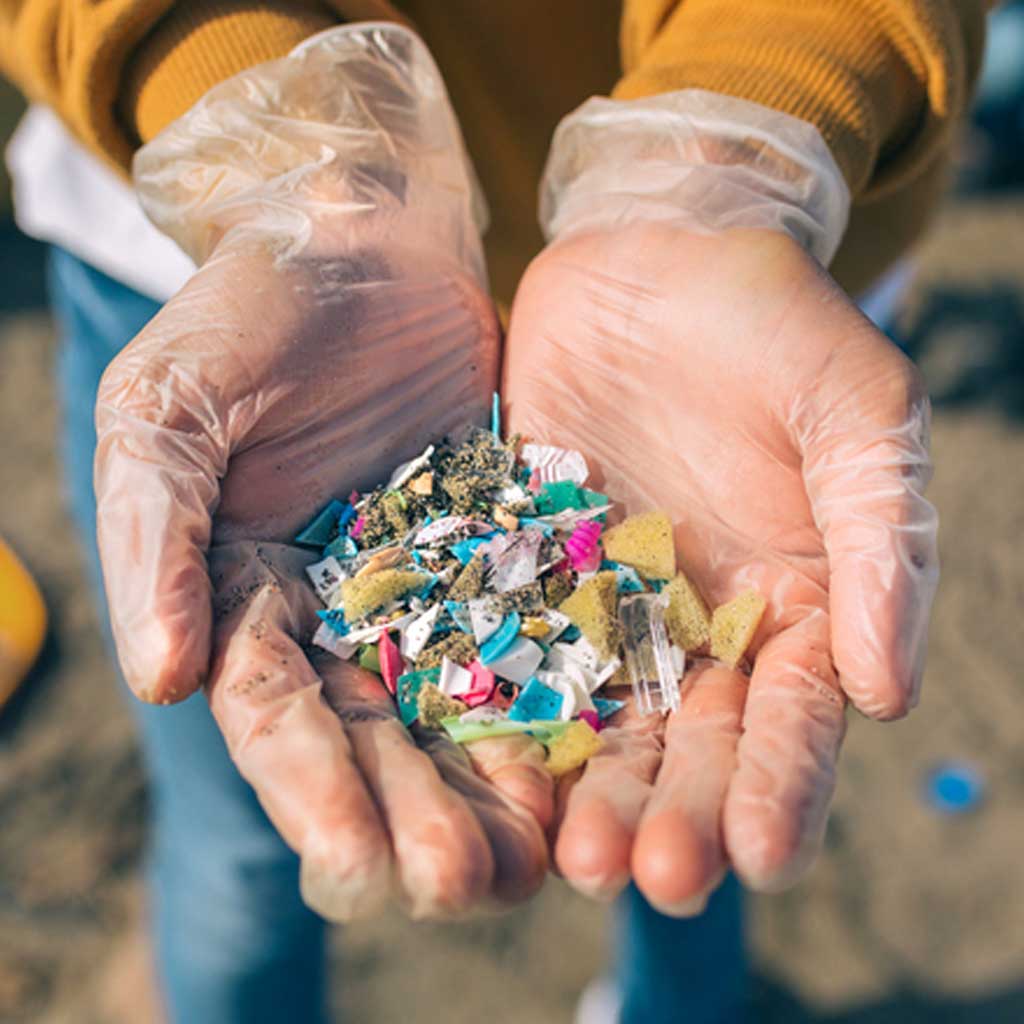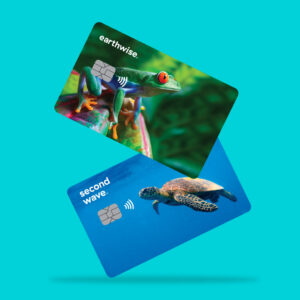The demand for more sustainable payment products is heating up. According to a November 2022 CPI survey conducted by an independent research firm*, 73% of debit and credit cardholders surveyed indicated that it is important that their financial institution is environmentally conscious. In addition, 89% of respondents expressed concern about plastic waste in landfills, and more than 9 in 10 of those surveyed were concerned about plastic waste in the oceans.
Types of eco-focused plastic card options
In the world of eco-focused credit and debit cards, the terminology can be confusing. We’ve all heard of “recycled” products, but how does that compare with materials that have been “upcycled” and “downcycled”?
To begin, “recycling” is a broad term that refers to the process of taking a material that would otherwise be discarded (such as a used plastic bottle) and converting it for a new use.
“Upcycling” is a subset of recycling that refers to the process of taking materials used in lower-value products (plastic bottles) and converting them for use in a higher-value product (like shoes, furniture, or payment cards). Conversely, “downcycling” refers to the process of taking materials from a higher-value product and converting them for a lower-value use case.
There are also some common plastics that issuers should familiarize themselves with:
Recycled PVC (rPVC):
Substituting traditional PVC plastic with a recycled option helps reduce first-use plastic and extends the useful life of plastic waste that otherwise may be headed directly to a landfill. This is an economical, eco-focused choice that makes an ideal entry point for environmentally-conscious financial institutions.
Recycled Polyethylene Terephthalate (rPET):
Similar to the plastic commonly found in clear packaging, these types of plastics do not contain halogens and have a lower end-of-life impact on the environment because they do not release harmful or toxic elements when degrading. rPET is sometimes offered with Glycol added (rPET-G).

Recovered Ocean-Bound Plastic:
When plastic is recovered from areas where it is likely to go into the ocean and diverted back into a supply stream, it is referred to as recovered ocean-bound plastic. Typically, these areas are within 50 miles of the ocean and have few waste-management systems in place. In 2019, CPI debuted Second Wave® payment cards featuring a core made with recovered ocean-bound plastic. CPI estimates that for every one million Second Wave® payment cards produced, over one ton of plastic will be diverted from entering the world’s oceans, waterways, and shorelines.
Don’t get left behind. Getting started with more sustainable payments
If you’re just getting started on your more sustainable payments journey, it’s best to take a step-by-step approach.
Before you begin, develop an overarching mission statement to drive your strategy. Ensure you have full support from senior leadership and your Board, and then proactively communicate your mission and objectives to all stakeholders, including your employees, customers, and community partners.

Next, talk with your card provider about the options available to best meet your customers’ preferences. With new and exciting alternatives to first-use plastic, you are sure to find one that will fit your program’s objectives.
Finally, when it comes to publicizing your sustainability initiatives, make sure to avoid “greenwashing.” This is when a company makes an environmental claim about something the organization is doing or the company’s products that is intended to promote a sense of environmental impact that does not exist. Remember that the term “eco-friendly” is more than simply a label to put on a product—the product itself must have a positive impact on the environment to support the use of that term and avoid “greenwashing.”
CPI is a leader in the market for eco-focused cards, and we’re proud to have sold more than 100 million since launching our program in 2019. CPI has extended our commitment to being a part of the movement to protect the planet® by partnering with organizations that are making a difference such as First Mile, OceanCycle, and NextWave Plastics.
*CPI consumer insights fielded November 2022 n2100
Learn more about CPI's eco-focused solutions








